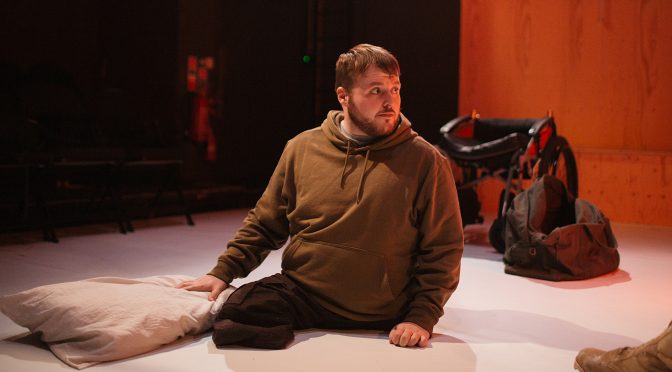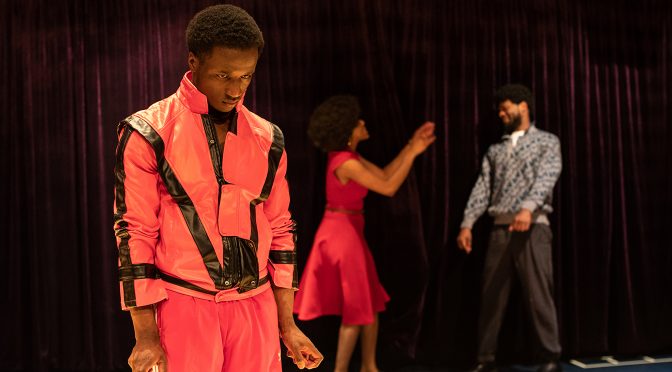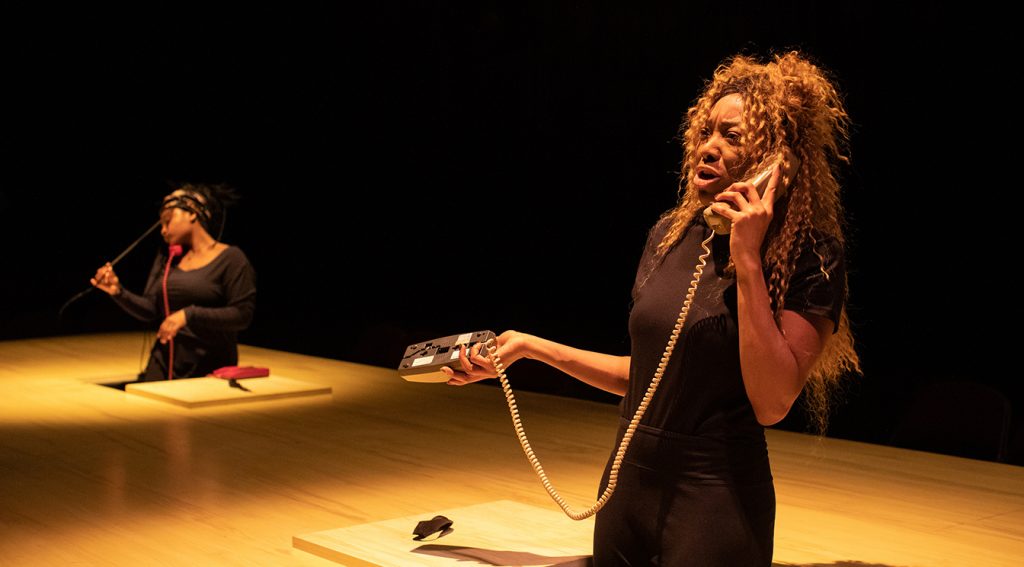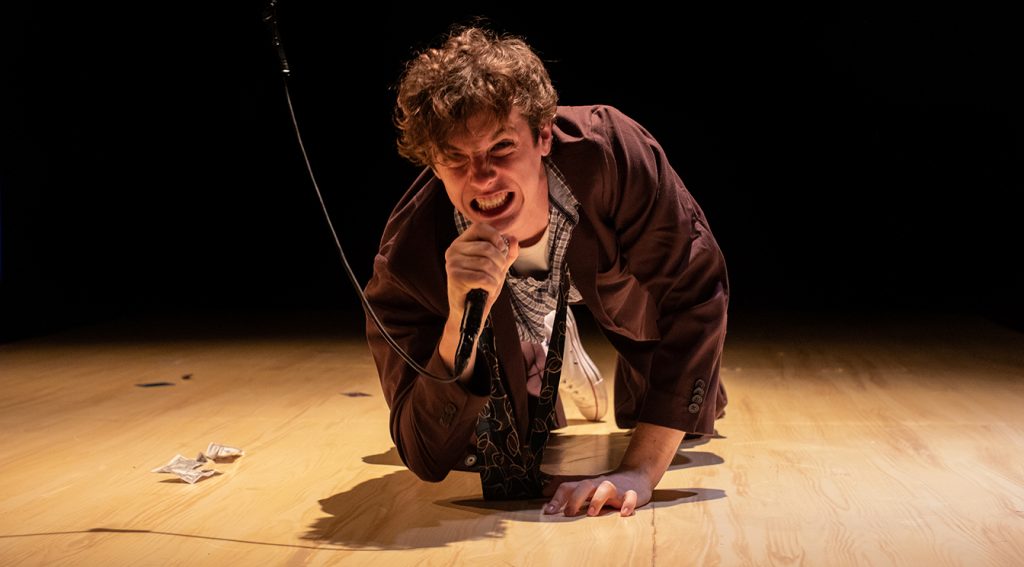Andrew Rosendorf’s story of Kyle, a badly injured soldier, is a big play about an awful lot of pain. The piece might explain more about the particulars of its 2011 setting – the U.S. war on terror and the ‘don’t ask don’t tell’ policy for LGBTQ military. And it might go into more detail about post-traumatic stress. But Paper Cut impresses in the effort to broaden concerns into the topic of identity. Examinations of trauma, family, and masculinity all play a part.
The acting in this production is strong. Callum Mardy takes the lead with a brave performance as Kyle. The character is pained and shocked by his injuries but also by his past. Dealing with his childhood as well as what happened in Iraq is overwhelming – for the audience as well as the character – but Mardy manages to show us the man behind the trauma alongside how events have shaped him.
As a study of machismo, the title is a ridiculous downplaying of Kyle’s injuries, Paper Cut is discomforting. Emasculation here is literal and addressed frankly. Time is also spent on showing how work and patriotism shape identity and both prove, by turns, moving and frustrating. The way Kyle betrayed his brother, and in turn feels he was betrayed in Iraq, are both shocking moments that need unpacking.
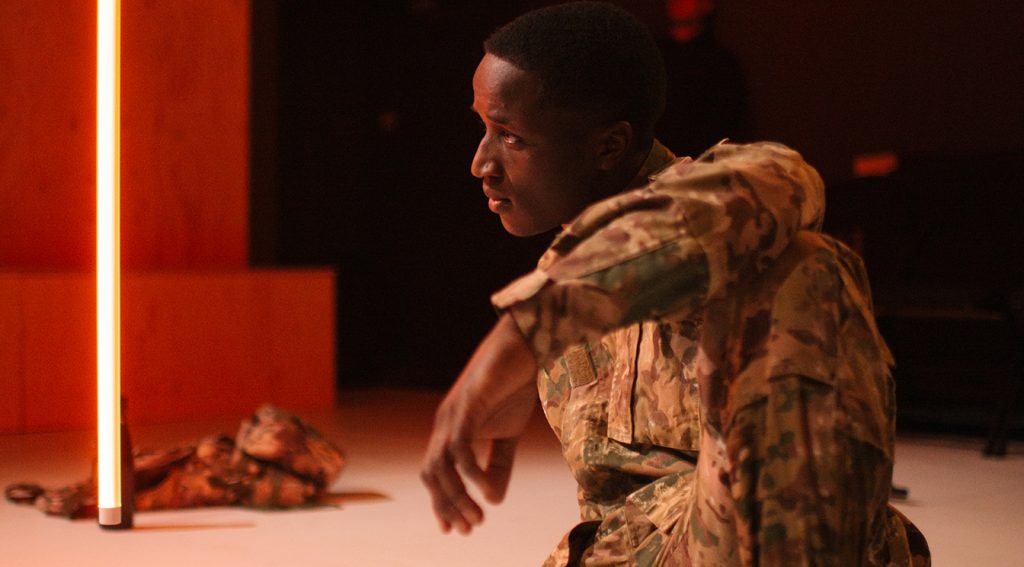
It seems an open question as to how much Kyle struggles with his sexuality, at least as an adult. An affair with his comrade Chuck, played by Prince Kundai, has flashback scenes that bristle with intimacy and tenderness. Kundai is a hugely exciting performer who gives an emotional portrayal with light touches. But the difficulties both men face when back home mean pursuing the romance is a step too far dramatically.
There’s also exceptionally strong support from Joe Bollard as Kyle’s estranged brother; a heartrending scene that explains their troubled background is matched by equally powerful, quieter, moments exploring how their relationship is changing. And there is a neat turn for Tobie Donovan who shows some strong comic skills as a gauche friend from High School.
Director Scott Hurran brings steely nerves and tight control to a script that sometimes overreaches. It would be easy to have everyone shouting and crying all the time…but it wouldn’t be convincing. You might say the approach is calm – for all the tragedy of events and high emotions – the pace is thoughtful and with so much going on that is smart. Hurran gives the play and his performers time to breathe so that the back and forth between events past and present has a bold rhythm. Paper Cut is sometimes difficult to watch but it is easy to recommend.
Until 1 July 2023
Photos by Stefan Hanegraaf

